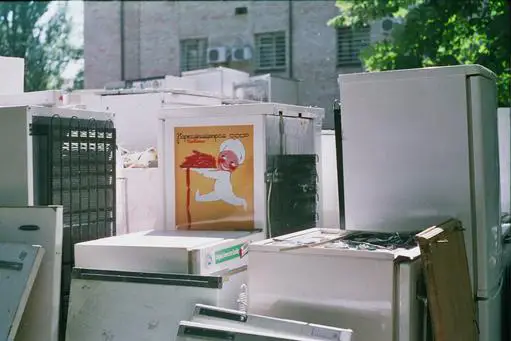R134a is a refrigerant used in air conditioners and refrigerators. It is also known as Freon. R134a has no smell.
R134a works by absorbing heat from the air inside the car and releasing it outside the car. This helps to keep the car cool and comfortable for the occupants.
R134a is an environmentally friendly refrigerant that does not contribute to ozone depletion. Additionally, R134a can help improve fuel economy by reducing engine workload. Let’s discuss what does r134a smell like
Are There Any Drawbacks To Using R134a?
R134a is slightly less efficient than other refrigerants, so it may not cool the car as effectively in very hot weather. Additionally, R134a is more expensive than some other refrigerants.
How Do I Know If My Car Uses R134a?
If your car was manufactured after 1994, it likely uses R134a. To be sure, check your car’s owner’s manual or ask a mechanic.
Yes, you can convert your car to use R134a. However, this is not a simple process and should only be done by a trained professional.
R134a has no smell. This makes it a good choice for those who are sensitive to strong smells. Additionally, R134a does not contribute to ozone depletion.
What Are Some Potential Health Risks Associated With Exposure to R134a?
R134a is not toxic and does not pose any health risks when used as directed. However, if R134a is released into the air, it can displace oxygen and lead to asphyxiation. Additionally, R134a can irritate the skin, eyes, and throat. If you are exposed to R134a, be sure to ventilate the area and wash your skin with soap and water. If you experience any symptoms, be sure to seek medical attention immediately.
What Should I Do if I Accidentally Release R134a Into The Air?
If you accidentally release R134a into the air, be sure to ventilate the area immediately. Open windows and doors to allow fresh air to enter. If you are outdoors, move to an area upwind of the leak. If you are indoors, turn off any air conditioners or fans that could circulate the R134a. Call your local poison control center or emergency medical service immediately.
How Can I Prevent Accidental Release of R134a?
Be sure to store R134a in a safe place, out of reach of children and pets. When working with R134a, be sure to wear gloves and eye protection. Be sure to follow the instructions in your car’s owner’s manual when retrofitting or servicing your car’s air conditioning system. Additionally, have your car serviced by a trained professional at least once a year to ensure that the system is functioning properly.
If you’re experiencing problems with your car’s AC and the smell of R134a is giving you a headache, it’s best to seek the help of a trained professional. A qualified mechanic will be able to diagnose and fix the problem quickly and efficiently.
Where Can You Find More Information About R134a And Its Effects On Human Health?
The U.S. Environmental Protection Agency (EPA) has more information on R134a and its effects on human health: https://www.epa.gov/r-134a-and-other-automotive-air-conditioning-systems-ozone-depletion
The Occupational Safety and Health Administration (OSHA) also has information on R134a and its potential health effects: https://www.osha.gov/SLTC/healthguidelines/freon/recognition.html
If you have any further questions about R134a or its effects on human health, be sure to consult a qualified medical professional.
Other Refrigerants
R-22- Freon 22 is a chlorofluorocarbons(CFC) and hydrofluorocarbon (HCFC) refrigerant used in a wide range of applications including refrigeration, air conditioning, and heat pumps.
R-410A- R-410A is a hydrofluorocarbon (HFC) refrigerant that is used as a replacement for R-22 in many applications. R-410A is non-ozone depleting and has no known effect on the Earth’s ozone layer.
R-404A- R-404A is a blend of HFC refrigerants that is commonly used as a replacement for R-22 in commercial and industrial refrigeration applications. R-404A is non-ozone depleting and has no known effect on the Earth’s ozone layer.
R-507A- R-507A is a blend of HFC refrigerants that is commonly used as a replacement for R-22 in commercial and industrial refrigeration applications. R-507A is non-ozone depleting and has no known effect on the Earth’s ozone layer.
R-134A- R-134A is a hydrofluorocarbon (HFC) refrigerant that is used as a replacement for R-12 in many applications. R-134A is non-ozone depleting and has no known effect on the Earth’s ozone layer.
R-152A- R-152A is a hydrofluorocarbon (HFC) refrigerant that is used as a replacement for R-12 in many applications. R-152A is non-ozone depleting and has no known effect on the Earth’s ozone layer.
R-600A (isobutane)- R-600A is a hydrocarbon refrigerant that is used as a replacement for R-134A in many applications. R-600A is non-ozone depleting and has no known effect on the Earth’s ozone layer.
Comparison Of R134a With Other Refrigerants
R-134A has a lower global warming potential than R-12, R-22, and most other HFC refrigerants. Additionally, it has very low toxicity and is not known to cause any adverse effects on human health. R-134A is also non-flammable, which makes it a safer choice for use in many applications. Overall, R-134A is a more environmentally friendly and safer option than many other refrigerants on the market.
Final Thoughts
If the frigidaire is leaking refrigerant, it will give h1 on frigidaire refrigerator code. R-12, R-22, and other refrigerants are being phased out in many countries because of the phase-out of these gases under the Montreal Protocol. Because it is non-ozone depleting and has no known impact on the Earth’s ozone layer, R-134A is a hydrofluorocarbon (HFC) refrigerant that can be used instead of R-12 in many applications. R-134A is not O3 depleting and has shown no ill effects on human health. It is also non-flammable, making it a safer choice for use in numerous applications. Overall, R-134A is a more environmentally friendly and safe option than most other refrigerants on the market.



